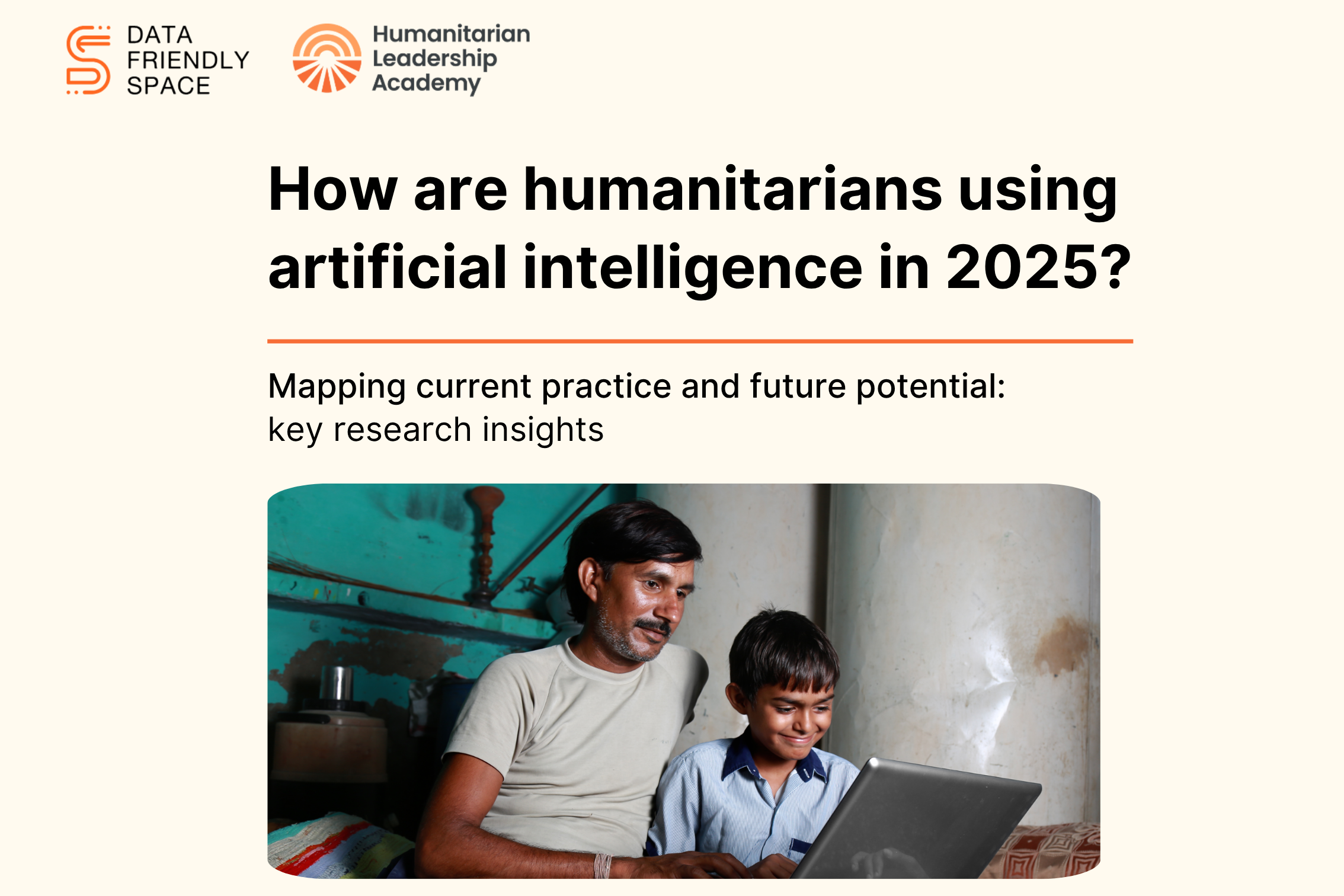
Our global survey of 2,539 humanitarian workers across 144 countries has revealed that artificial intelligence adoption in the humanitarian sector far outpaces organizational readiness, creating what we call the "humanitarian AI paradox."
The comprehensive study, conducted by the Humanitarian Leadership Academy and Data Friendly Space, found that 93% of humanitarian workers are already using or have tried AI tools in their work, with 70% incorporating them into daily or weekly workflows. However, only 8% of their organizations report wide AI integration, highlighting a striking disconnect between individual innovation and institutional capacity.
The research reveals that humanitarian workers are not waiting for permission to engage with AI; they are already experimenting and adapting tools to serve crisis-affected communities. From needs assessments in Yemen to women's empowerment programs in Afghanistan, they are finding creative applications for AI across diverse humanitarian contexts.
Contrary to expectations, the study found that resource constraints may be driving innovation. Organizations in low-resource settings demonstrated high levels of AI experimentation, with respondents describing how they overcome connectivity issues through offline tools and creative workarounds.
"Sometimes, weak internet or power problems make it harder to use AI tools, especially in remote areas. But we try to find solutions, like using offline tools or lighter apps that work with low internet. These challenges push us to be more creative and find better ways to bring AI to the people who need it most," shared one survey respondent.
While humanitarian workers expressed widespread ethical concerns about AI use, including data sovereignty, bias, and community participation, these ranked fourth in priority, after immediate operational needs such as training, funding, and access to tools. This reflects the sector's chronic resource constraints and pressure to deliver rapid results in crisis contexts.
The research highlights several successful purpose-built AI implementations, including:
Madigan Johnson, Head of Communication at Data Friendly Space, said: "The humanitarian AI paradox shows us that innovation is happening despite institutional gaps, not because of them. We need coordinated sector-wide approaches to practical implementation.”
Lucy Hall, Data and Evidence Specialist at the Humanitarian Leadership Academy, emphasized: “Given that it’s individual humanitarians who are driving the AI transformation, this is a real opportunity for organizations and leaders across the humanitarian and technology sectors to build systems shaped by those already leading the way: the people using AI to respond more effectively to crises.”
Ka Man Parkinson, Communications and Marketing Specialist at the Humanitarian Leadership Academy, stated: "Our research highlights that humanitarians recognise AI's transformative potential - but also its potential risks. Open dialogue and coordination are crucial to align approaches and to ensure that AI can truly make a difference to humanitarians and the communities we serve.”
This study represents the world's first global humanitarian AI mapping exercise, establishing baseline data with 80% of respondents opting in for longitudinal tracking. The research included:
The research identifies urgent challenges requiring coordinated sector response across five key areas: bridging the implementation gap, leveraging accessible AI tools for capacity building, coordinating fragmented training approaches, closing governance gaps, and balancing commercial tool dependence with purpose-built solutions.
The Humanitarian Leadership Academy accelerates the movement for locally led humanitarian action, connecting 875,000 learners worldwide through its digital platform Kaya and engaging 1.2 million people through social media.
Data Friendly Space provides trustworthy digital tools and actionable data that enable social impact organizations to fulfill their missions more effectively, specializing in AI, data ecosystems, and humanitarian data analysis.
Madigan Johnson
Head of Communications, Data Friendly Space
hello@datafriendlyspace.org
Ka Man ParkinsonCommunications and Marketing Specialist, Humanitarian Leadership Academyinfo@humanitarianleadershipacademy.org